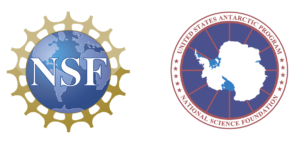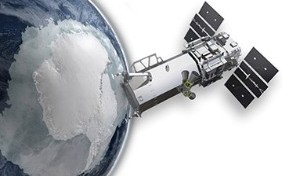
Missed out on the newsletter via email? Sign up here!
COVID-19 Response
Since the beginning of the Coronavirus outbreak in mid-March, the PGC has followed the guidance of the University of Minnesota to resume operations remotely. The University’s and PGC’s top priority remains the health and well-being of our communities.
Our team swiftly adapted to working from home as our work is fundamentally achieved remotely. We map the most isolated places on Earth using earth-orbiting satellites and state-of-the-art techniques (and quarantining at home has its similarities to working at McMurdo Station, Antarctica).
Our ongoing commitment to supporting the polar science community remains unchanged. We hope our services can help those impacted by cancelled fieldwork or interrupted science and logistics by utilizing remote sensing and geospatial analysis.
Please feel free to reach our User Services team with any questions, requests or concerns at pgc-support@umn.edu.
Anti-Racist Solidarity Statement
The Polar Geospatial Center (PGC) at the University of Minnesota – Twin Cities stands firmly against the systemic racism that has long afflicted society and still causes immeasurable daily harm to Black People, Indigenous Peoples, and People of Color (BIPOC). Please read our full statement against racism that expresses our team’s values, commitment and stance in anti-racism solidarity.
Antarctic On-Ice Support 2020-2021 Update
The National Science Foundation (NSF) Office of Polar Programs recently announced the U.S. Antarctic Program plans for the upcoming Antarctic season (read the update here). Limited activities will be supported to ensure the virus is not transported to USAP stations and beyond. Therefore our in-person presence on the continent is being postponed to future years. Although PGC will not be deploying for the 2020-21 field season, our products and services are still available. Contact our User Services team to discuss possibilities of how PGC can help your science and logistic objectives.
Antarctic Tasking Requests Due July 24, 2020
PGC is working with the National Geospatial-Intelligence Agency (NGA) to coordinate collections of high-resolution commercial satellite imagery from DigitalGlobe for the upcoming 2020-21 Antarctic field season.
Please get in touch with your PGC Point of Contact if you have federal funding and conducting Antarctic research or providing Antarctic logistics support and would like to submit tasking requests for your area(s) of interest. The deadline for requests for the upcoming Antarctic field season is July 24th, 2020.
If you submitted a request for a previous year and would like to have imagery collected for a future season contact your POC for resubmission.
PGC Users Webinar Series
The PGC Users Webinar Series has elicited meaningful interactions with our user communities. Thank you! Due to Covid-19 our series plans were interrupted and our team had other priorities unfold.
Now in light of the Arctic and Antarctic field seasons being cancelled this year, we want to take this opportunity to showcase some of our users’ remote sensing based techniques and research that may inspire or supplement any project changes others have experienced.
Dr. Mark Salvatore at Northern Arizona University will be presenting “From Microbes to Exoplanets: Ecological Remote Sensing of the McMurdo Dry Valleys of Antarctica and Beyond.”
Join us and stay tuned for future speakers! Register at the link below.
TOPIC: Science Speakers – Dr. Mark Salvatore – From Microbes to Exoplanets: Ecological Remote Sensing of the McMurdo Dry
WHEN: July 29, 2020 at 12-1 PM Central
REGISTRATION: https://umn.zoom.us/webinar/register/WN_5Ma3foiEQpK8WlRLxOeUGQ
Previous webinar materials are available on our website within the About > Impact page under ‘Education & Outreach.’
PGC Support Vignette
Anna Liljedahl, an advisor on the PGC Science Operations Committee, PGC user and hydrologist at Woods Hole Research Center, is differencing ArcticDEM data and analyzing satellite imagery to measure and model climate impacts and land-mass movements in Alaska. Liljedahl and fellow researcher and PGC user, Chunli Dai from Ohio State, discovered the sliding slope of Barry Arm region of Alaska.Climate change has left only a third of the slope supported by the Barry Arm Glacier. Liljedahl estimated a sudden landslide triggered by an earthquake, persistent heavy rainfall or even rapid surface snow melt is increasingly likely and a consequential tsunami could devastate the town of Whittier, Alaska.
Read more in the Alaska DNR Press Release and New York Times article.
Read the original PGC Newsletter post here.




